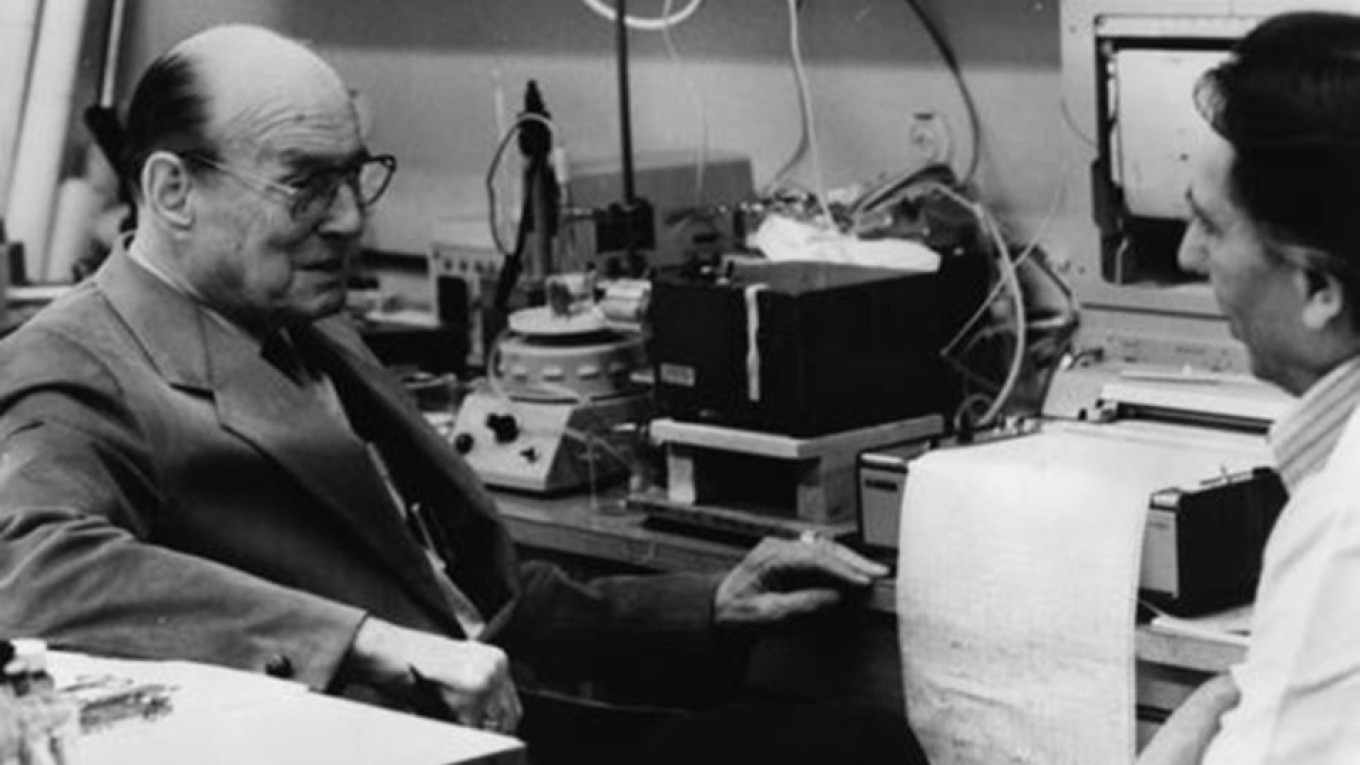
Russia’s state nuclear firm Rosatom has declassified the personal files of German scientists involved in the Soviet nuclear program after World War II.
The Soviet Union tested its first atomic bomb ahead of schedule in 1949, an achievement largely attributed to German experts and Soviet espionage on the U.S. Manhattan Project. Stalin had awarded prestigious state prizes to German specialists in the late 1940s and early 1950s for their contribution to the Soviet atomic bomb project.
Rosatom’s newly declassified trove features special-purpose questionnaires filled out by six German scientists, one of which was completed by Nobel Prize winner Gustav Hertz.
The trove also includes a declassified order by NKVD intelligence service chief Lavrenty Beria to move German special equipment to a Soviet lab dated May 15, 1945, less than a week after Nazi Germany’s unconditional surrender.
Pavel Oleynikov, a group leader at one of two centers for Russia’s nuclear program, detailed the role of German scientists in the Soviet nuclear program for the James Martin Center for Nonproliferation Studies in California.
“While the Soviets did not need the Germans’ help to build an atomic weapon, their contributions certainly accelerated the Soviets’ push to become a nuclear weapon state,” Oleynikov wrote in 2000.
Rosatom has published a series of previously classified documents in the past week to commemorate next year’s 75th anniversary of the Russian nuclear industry.
